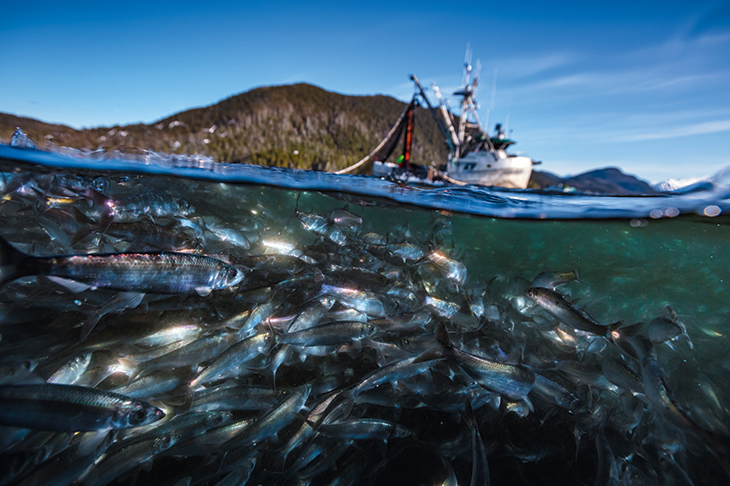If you liked Triumph of the Will, you’ll love this latest masterpiece of the genre: Our Planet. The Netflix nature series exploits the prestige, popularity and swansinging poignancy of Sir David Attenborough to promote an environmental message so relentlessly dishonest and alarmist it might have been scripted by the WWF.
‘Walruses committing suicide because of global warming.’ That was the nonsense from episode two repeated uncritically by all the newspapers, none of which seems to have been much interested in questioning the veracity of the claim. You’ll never guess what it was that really drove those walruses over the edge of the cliff… Ironically, the likely culprits were polar bears — that supposedly threatened species whose population has grown exponentially in the past 50 years to the point where they are now beginning to become something of a pest.
But obviously you were never going to hear any of that from TV’s favorite whispery-voiced gorilla-hugging Malthusian. Why let the facts get in the way of his narrative, which is that in the past 50 years the human species has catastrophically altered the balance of nature (hitherto ‘stable’, apparently) which has been plunged into chaos by man-made climate change?
I shan’t detail all the arrantly false claims, which I’m sure you’ll find patiently rebutted on the internet soon enough. Instead, I want to focus on the shamelessly manipulative nature of the production, which in future years I’m sure will be offered in MI6 seminars on how to brainwash millions without their having a clue they are being brainwashed.
Music, as Riefenstahl knew, is key. The score of Our Planet hammers home the message with all the subtlety of an amplified kettle drum: exaggeratedly comical, wacky circus music for when the manakin birds are performing their funny carousel dance routines; thrilling, stirring adventure music for when the wolves chase the caribou or the hunting dogs go after the wildebeest; achingly sad violin music for when the fledgling flamingo staggers to a slow, agonized death as its little legs are shackled with encrusted salt.
The effect is like being on a roller coaster of confected emotion: one second you’re elated, then very, very sad, then awestruck, then sad again. These rapidly changing mood shifts are intensified by a cheesy script (‘the sheer diversity is breathtaking’) overripe with superlatives: ‘one of the richest seas on earth’ (gosh wow. That rich?). Damn it, you love this beautiful planet. You’d do anything, anything at all, to save it — especially that ickle dying flamingo who was put there, just for you, to make you feel exactly this way. ‘What can we do to help, O Magic Eco-Grandpa? How can we amend our selfish ways? Now that plastic’s sorted what do we ban next?’ you wonder, gullible schmuck that you are.
Phoebe Waller-Bridge’s tour-de-force Fleabag (Amazon Prime) came to a characteristically sort-of-funny-but-not-quite, sad, moving, bittersweet, dark, wry, implausible, erotic, clever close this week. Inevitably — spoiler alert — Phoebe didn’t get her man. But then, given that he was a devout Catholic priest, how could she possibly have done without either ruining the carefully established tone or straining the already pretty implausible premise beyond credibility.
I like and admire Fleabag, but I’m not sure how much I ever loved it. It’s not one of those comedies like, say, Peep Show which you watch confident that you’re going to have a really good laugh. Rather you watch it in the way you might sit through an acclaimed Royal Shakespeare Company production of As You Like It, knowing you’re not really there for the ‘comedy’ but rather to be edified by the superb ensemble acting and the witty bons mots.
‘I think you know how to love better than any of us. That’s why you find it so painful,’ muses Dad (Bill Paterson) to his daughter as — typical Fleabag scenario this — she releases him from the attic where he has got his foot trapped in a subconscious attempt not to have to go through the marriage ceremony waiting for him downstairs. Is that so profound and so true? Or sententious, hormonal, millennial drivel? Probably a bit of both, but it’s amazing what you can get away with when — as Fleabag did — you carry it off with such verve, charm and confidence.
This article was originally published in The Spectator magazine. Sign up to James Delingpole’s weekly email on what to stream and watch and what to turn off here.

























